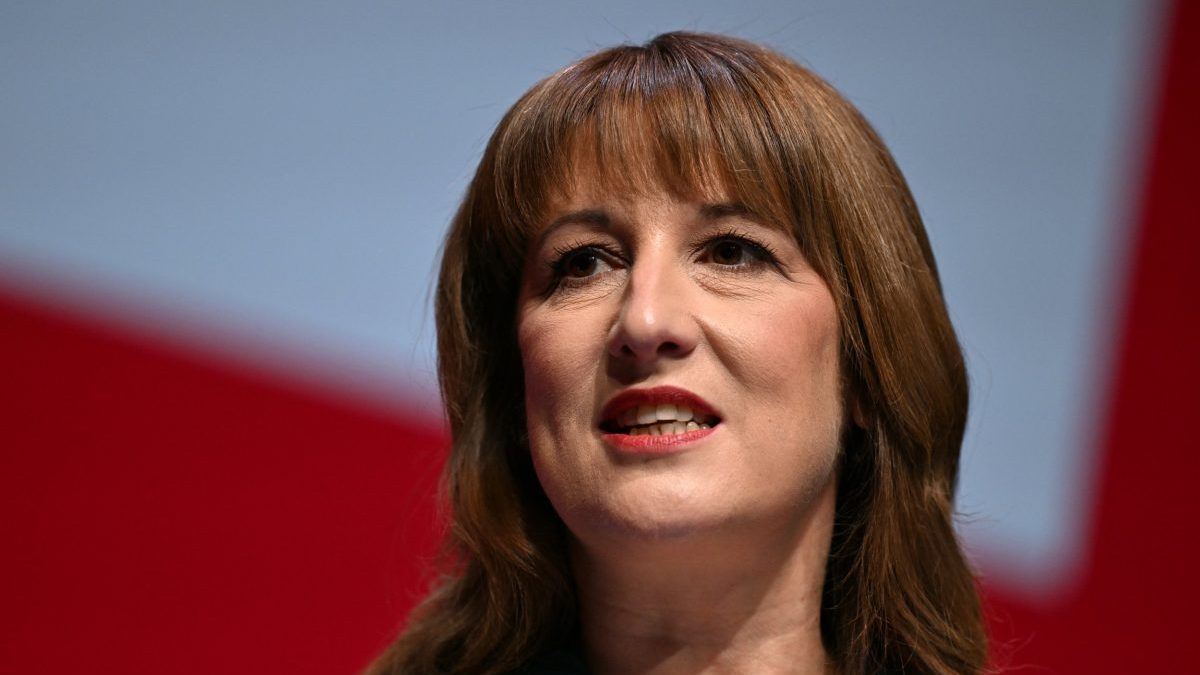The Chancellor has claimed that Britain’s economic woes have been “compounded” by Brexit – but is that the case?
Chancellor Rachel Reeves has linked the UK’s slow growth and rising taxes to the long-term effects of Brexit, arguing that the way Britain left the European Union has made the economy smaller and productivity weaker.
Labour has previously been reluctant to stress arguments about the economic downsides from Brexit, but the Government now appears to be changing its tune.
Other figures, including Health Secretary Wes Streeting and Bank of England governor Andrew Bailey, have made similar remarks in recent weeks.
New FeatureIn ShortQuick Stories. Same trusted journalism.
Here, The i Paper looks at what Reeves has said, what the evidence shows, and how far Brexit alone can really be blamed for Britain’s economic slowdown.
What has the Chancellor said?
Speaking at the International Monetary Fund, Reeves said “the UK’s productivity challenge has been compounded by the way in which the UK left the European Union.”
She pointed to the Office for Budget Responsibility’s (OBR) estimate that the economy is around 4 per cent smaller than if Britain had stayed in the EU.
In an interview with Sky News, she called the impact “severe and long-lasting”, adding that Brexit, austerity and the fallout from Liz Truss’s mini-budget were all shaping her decisions ahead of next month’s Budget.
Reeves said ministers were trying to “undo some of that damage” by rebuilding links with the EU on food, farming, youth mobility and energy trading, while seeking “stronger trade ties, most importantly with the EU”.
 Health Secretary Wes Streeting (Photo: Dan Kitwood/Getty Images)
Health Secretary Wes Streeting (Photo: Dan Kitwood/Getty Images)
Who agrees with her?
Health Secretary Wes Streeting said he was “glad that Brexit is a problem whose name we now dare speak”.
Speaking at the Cliveden Literary Festival, he said Britain had suffered “over a decade of low productivity, low growth, and therefore you end up with a high burden of taxation.”
Streeting said: “We were warned [Brexit] was going to have an economic impact, and it has. And it’s hit our country hard.” He called for a “more rational conversation” with the EU to “begin to build back what we have lost.”
Andrew Bailey, the governor of the Bank of England, has also said the UK’s growth potential has fallen.
He told an audience in Washington that it had dropped from 2.5 per cent to 1.5 per cent over the past 15 years, citing “lower productivity growth, an ageing population, trade restrictions – and post-Brexit economic policies.”
Bailey described the short-term effect of Brexit as “negative for the foreseeable future”, but said there could be “some at least partial rebalancing” over time.
What does the evidence show?
The OBR has repeatedly said that Brexit will make the UK economy about 4 per cent smaller in the long run than if it had remained in the EU. Its 2025 forecast said roughly a third of that loss had already happened, mainly because of weaker trade and lower business investment since 2016.
A 2025 study by John Springford for the Constitution Society and the Federal Trust found a similar result. By mid-2022, he estimated, the economy was 5 per cent smaller than it would have been without Brexit.
Business investment was 10 per cent below trend, cutting GDP by about 1.3 per cent. He said this had cost the Treasury around £40bn a year in lost tax revenue, writing that “the consensus view – that Brexit’s economic impact would be negative and large – has been borne out.”
Springford also found that goods exports and imports were 15 and 13 per cent lower than those of comparable economies. The car industry has been one of the hardest hit, while financial and transport services have grown more slowly than elsewhere.
New trade deals with Australia, New Zealand, India and the trans-Pacific partnership are forecast to lift GDP by only 0.2 per cent in total – far smaller than the losses from reduced EU trade.
A separate analysis by Cambridge Econometrics, commissioned by City Hall, estimated that Brexit had cost the UK £140bn in lost output and nearly two million jobs by 2023.
It said London alone had lost £30bn and 290,000 jobs, mainly in finance and construction. Mayor Sadiq Khan said the findings showed that “the hard-line version of Brexit we’ve ended up with is dragging our economy down and pushing up the cost of living.”
Are there other reasons for the UK’s slow down?
The OBR has suggested that Brexit is only one part of the picture.
It has identified other long-term pressures – including the 2008 financial crisis, weak investment, and the global energy shock after Russia’s invasion of Ukraine.
In a 2023 report, the OBR wrote that “weak productivity growth since the financial crisis reflects low investment in capital, skills and innovation.” Its chair Richard Hughes told MPs last year that “business investment in the UK has been weak since the referendum, and public investment has not compensated for that shortfall”.
Another OBR economist, Professor David Miles, said it takes time for new spending to boost growth. “There is a time lag between starting projects, spending some money on them and them actually coming on stream,” he said.
Hughes also pointed to record numbers of people out of work due to poor health. “People being out of work for health reasons is accounting for hundreds of thousands of people lost from the labour force since pre-pandemic,” he told MPs.
“Mental health is now the most common reason people cite for being out of the labour force.”
So, is Brexit to blame?
Most major studies – including those by the OBR, the Constitution Society and Cambridge Econometrics – agree that Brexit has made the UK economy smaller and weaker than it would otherwise have been, mainly because of lower trade and investment.
The estimated loss, between 4 and 5 per cent of GDP, is widely accepted by official and independent forecasts. But these studies also show that Brexit is not the only cause of Britain’s economic problems. Weak productivity, years of underinvestment, global shocks and an ageing population have all added to the slowdown.
Verdict: Evidence from official and independent sources supports the claim that Brexit has weakened the UK economy.
But it is one of several factors holding back growth – not the only one.
